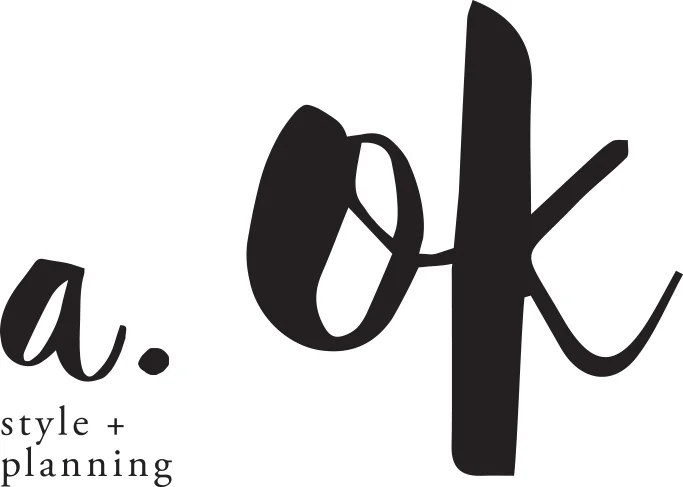what perfectionism can do for you
There is this epidemic going around called Perfectionism. It's a slimy little sucker, crawling in the cracks of your confidence, worming it's way into your self-worth, teaching you how to make yourself so small that you disappear or build yourself so big that you topple. "Perfectionism is the voice of the oppressor," said Anne Lamott. Ain't it the truth? It oppresses so many things: good ideas, second chances, forgiveness, works of art, happiness, love.
I used to wear my perfectionism as a badge of honor. If I am everything to everybody, then they will all like me. I said to Craig last week, "I can get anyone to like me." Ew. That's a terrible statement. Conceited, assumptive, unnecessary, and clearly over-compensating for a deep sense of lack. Not only is that absurdly untrue (I know plenty of people who don't like me), having a skill like that is ridiculously counter-intuitive to living an amazing life. For my money, an amazing life is daring, magical, risky, loving, and open. And those qualities will generate different reactions, maybe even divisively, because they are bold.
This need to be perfect comes from some serious lack of trust. If I let my truthful, flawed, imperfect, sometimes conceited, sometimes horribly apologetic, usually over-compensating, desperate-to-be-liked self out there, I usually don't trust the world will pick me up and love me anyway. And why would I feel that way?
I got this disease called Perfectionism that I've been running around with for years. This is what Perfectionism has done for me and can do for you, too, if you let it:
It can alienate the people who love you the most. If we decide that everything we do has to be perfect, the people around us are going to feel suffocated. Trapped. Buried beneath our heaviness. Maybe they aren't perfectionists, but they are constantly needing to measure up to our own standards. Woof. I'm exhausted just thinking about it.
If we could accept that life is sloppy, that plans gets muddled up, that yes clothes need to get washed every week, then this voice that we have in the back of our heads that screams: You're not finished yet! You didn't do everything! You'll never catch up! Everyone else can do this so much better than you! can just shut up for once. How much space, and life, and energy would that send into your day? There's only one way to find out, and that's to kick perfectionism out on its butt.
It can create super-ultra-no-holding-back Defensiveness with a capital D. You want to get stuck in your tracks? You want to never grow in your craft? You want to resist changing bad habits that only hurt you? Then you better get defensive. The perfectionist can't stand being told they did something wrong. It's always - I know, but here's why...
New rule that I'm implementing when I receive feedback: just receive. Slow down, listen, wait until I'm sure I've heard what the other person is saying. If I still want to be defensive after I've done this, I need to go back and try again. Because the rule goes like this: if you're wrong, don't be defensive. If you're right, there's no need to be defensive. If you're not sure, defensiveness ain't gonna clear it up.
It can cause you to lie to everyone, including yourself. I'm not saying I've ever lied super-duper dramatically, but I have hidden tons of small truths. You know when someone really hurts your feelings, and you stuff all of that sadness and hurt down down down down, and maybe a little truth seeps out but it's only passive-aggressive truth so you can cover your tracks later if they call you out? Yeah me neither, I've never done that...
Well, all of those little lies build up over time. None of them help you. You just end up not knowing who you are. Let me say for the record, that being apologetic, foolishly amenable, and unaffected to the point of not knowing who you are at the end of your 20s is not an attractive place to be.
It can run you right into the ground. Oh yes. This one I know well. Do more, be more, say more, work more. In my life, the battle is waged anew each day: try not to overwork today. Yes, we perfectionists will clock in early and stay late. We will go above and beyond the call of duty even when no one wants that from us. We will respond ASAP so you know how responsible, how on top of it, how good we are.
Listen, I'm all for getting deep into your passion and filling your days with thrilling work that fuels your fire, but there are limits and boundaries. If you're going to get that fire fueled, there are some days when the email needs to get shut down, the yesses need to be edited, and the overflow of expectations needs to be economized. Like I said earlier, being everything to everybody is not the way to live an amazing life.
The Perfectionism Hit List goes on, but you get the idea. It's not the best tool in your life kit. If I take all of the above points and define their opposite, this is what I see waiting on the other side: Love, Acceptance, Trust, Worthiness. And for the Perfectionist, what exactly are we seeking by checking off each to-do ASAP, getting every surly person to like us, working extra hours just to prove we care? Love, Acceptance, Trust, Worthiness.
So it all comes down to letting it go. Spinning wildly out of control and stumbling into balance. Tripping up and falling into the world's embrace. Setting down the work and breathing in the surrender. Learning to love our imperfect little selves as perfectly as we can.
Where does Perfectionism trip you up?










